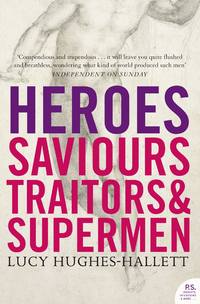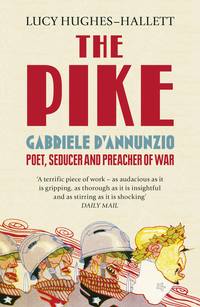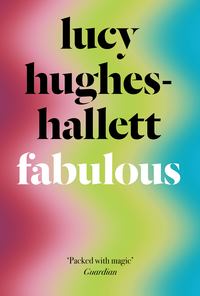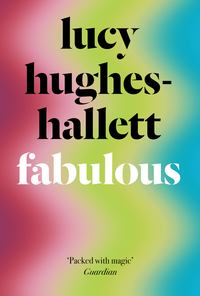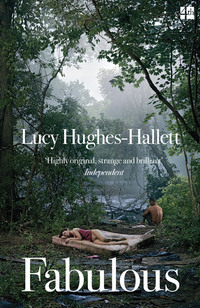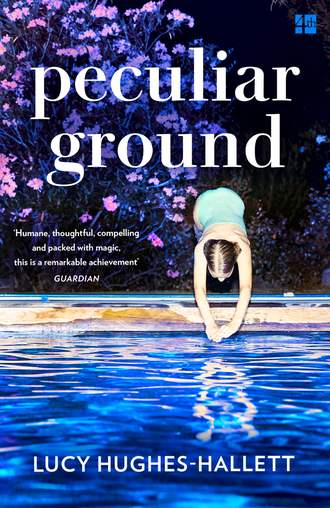
Полная версия
Peculiar Ground
When I saw them clambering over their sire two days ago I thought I was looking at happiness.
Lady Woldingham sits by her dead boy as still and quiet as though the calamity had rendered every possible action otiose. The other children are brought to her from time to time, when their nurses despair of stilling their howls. She looks at them as though glimpsing them dimly, across an immense dark moor. To what purpose speech, in the face of such grief?
I cannot bear to come anywhere near my Lord.
*
The guests have all gone. They will return for young Charles Fortescue’s funeral, but yesterday they started up and fluttered away with a unanimity to match that of a murmuration of starlings. I would that I could do the same.
Ten years ago it was a common thing to see how, when a man’s brother or father was accused, that person’s friends would seem not to notice him when he passed by in the street. One would fuss with the fastening of a glove rather than catch his eye when it came to choosing where to seat oneself in the coffeehouse. Then I thought that we were all cowards, but prudent with it. When a country has been at war with itself every citizen has a multitude of reasons to fear exposure – exposure of miscreancy, but exposure also of those actions which might at the time of their performance have seemed most honourable. Now I think that the shrinking from those marked by misfortune was not the ephemeral outcome of civil war. It was not only that we feared spies and informers. There is something appalling about misfortune itself.
The tribulations of others are our trials. By our response to them we shall be judged, and I fear that, awkward as I am, it is a trial I am bound to fail.
It is less than a week since I wrote in these pages that Lord Woldingham was careless. I thought him boisterous and gay. I made of him a benevolent despot who would fill this house with colour and bustle. I mocked him, just a little, and so timidly that even I could not hear myself do it. I was like a child who thinks his parents omnipotent, and so licenses himself to jeer at them, and then is terrified to see them cry.
There was crying aplenty yesterday, but not from him.
He had not sent for me. But I knew that, however irksome he found my attendance, to stay away from him longer would prove me inhuman.
I found black clothes. Not difficult for me – my wardrobe is sober. When I judged that Lord Woldingham would have breakfasted, and might be walking out in the garden, with his dog Lupin waddling behind, I prepared to encounter him there.
As I stepped out of my room I all but knocked down a maid whose hand was already lifted to beat upon the door. It wasn’t until I looked at the note she handed me that I knew where I had seen her before – at Wood Manor. Cecily apologised for making so peremptory a request but asked me to come at once, and discreetly. My uncertain resolution to offer my condolences to my employer was laid aside in an instant.
There is a horse provided for my use. I told the groom I might be out a considerable while. I am not a confident horseman, but I asked the cob to hurry, and, heavily built as she is, she obliged with a pace that quite alarmed me. She made her way to Wood Manor almost without my guidance. Cecily was waiting in the entrance hall, and led me at once to a small room where the woman Meg sprawled on the rushes in a corner, bundled in a cloak, her head thrown back against the distempered wall, her eyes closed.
‘She has been set upon,’ said Cecily. ‘They chased her with dogs.’
‘Is she hurt?’
‘I think only very much afraid. She is prone to fits. Perhaps she has had one. Our man found her and saw off her assailants and brought her here across his saddle.’
‘I am no physician.’
‘Mr Richardson will be here shortly. But it is not only medicine we need. My cousin’s men harass her and her companions, but I do not think he knows it.’
We stood in the centre of the room, speaking urgently and low.
‘If he is informed, he will surely discipline them.’
‘Today is not . . .’
She was right. I too shrank from the idea of pestering him in his grief. But there was a worse reason for Cecily’s hesitation.
‘They say she killed the boy.’
I began to protest at such idiocy, and then recalled that I myself have been afraid of Meg.
‘But he died surrounded by his attendants. The woodcutters, the other children. So many people were present. Not a one has said that she was there.’
‘They say she can kill with a wish.’
The woman moaned, and a little blood ran from the corner of her mouth. The room smelt of last year’s apples. The sole window was veiled with cobwebs, and kept tight shut. We were as though imprisoned.
‘My mother too. They call the two of them weird sisters.’
I am a man of reason. I live in a nation that has been riven by doctrinal disputes for more than a century. I have listened to temperate, kindly disposed people swear that they will never again feel any affection for a brother, or a friend, because that other holds an opinion they cannot share as to what precisely takes place when the priest mumbles over the wafer of a Sunday morning. I am not an atheist. I marvel, as any natural philosopher must, at the intricate and ingenious thing the world is. But I am sure that, whatever the Creator may be, no human conception of him can be incontrovertibly right. Bigotry is abhorrent to me. But worse even than the intolerance of churches (and chapels, and conventicles) is the frenzy of the weak when fear drives them to blame their fellow beings for the catastrophes which lie in wait for us all.
‘I had thought that that madness was passed by.’
Cecily seemed to be holding herself upright with a great effort. ‘Meg’s teacher was called a witch, and ducked, and died of it.’
‘Before the wars, surely.’
‘There are many who remember it.’
‘But your mother. No one would presume. Lady Harriet is not the kind to be suspected of witchcraft.’
Cecily gestured irritably, a mere twitch of her hand. ‘Witchcraft is a meaningless word. A mere pretext. This is because my mother and Meg both worship in the forest.’
I had no idea what she meant. She didn’t deign to help me.
‘We cannot wait. Go to my cousin and tell him what is being said. Say that my mother is in danger. Here is Mr Richardson. Go quickly.’
In her nature playful gentleness and a tendency to be dictatorial are most oddly combined. I bowed myself out quite sulkily, as the apothecary was ushered quickly into the little room from which I had just been summarily expelled.
My Lord received me calmly, albeit his face looked blurred, as though he had been roughly handled in the night. I delivered my condolences, to which he made only perfunctory answer, and my message, which he seemed to understand more clearly than I did. There ensued much galloping about. A carriage was sent. Lady Harriet, complaining feebly, was brought back with her daughter and ensconced in one of the recently vacated guest-chambers. Her maid came after on a cart. Meg was carried in, still as in a dead faint, with Mr Richardson attending, and laid among cushions on a settle in my Lord’s study.
Lord Woldingham gave orders that all the estate workers should be called together on the grass patch before the house. Once a sizeable crowd had gathered, he took his hat and went out to them, I following along with the people of the household. All in black, he looked oddly reduced.
‘You know that I have suffered a great loss. I speak now to all of you, to those who knew me when I was an infant in this place, and to those who have shared my exile. I have been away a long time. But do not suppose that Wychwood was ever left behind me.
‘We have all observed, from conversing with our grandparents and other elders, that the very first impressions are the most deeply inscribed. Even one who can scarce remember whether it be time to rise or to go to bed will marvel at a butterfly seen half a century ago. Another asks fondly after a dog who died before our King’s father came to the throne, even if he cannot recollect the latter end of that unhappy monarch.
‘I am not yet in my decline, but I assure you that many of the dreary days of exile have been erased from my mind, while pictures from my first three years, passed in this very house, have comforted me in my absence. Yesterday morning my boys were playing with a wooden ark they found in their nursery. I have gone so far, and my homeward course has meandered so unconscionably, it seemed a miracle to see the little dents in the rump of the wooden elephant. It is a marvel that the mind can sling a bridge across so sad a gulf of time, and yet I tell you all that as I handled the toy I could feel again the pleasure with which, as a child, I bit down on that piece of painted wood.
‘The milk-teeth that made those little wounds are shed, but the jaw in which those teeth grew is here’ (at this he tossed back the curled tresses of his long wig as though presenting his throat to be cut). ‘You have yet to know me, but I am one of you. One of the men of Wychwood.’
This was not at all what the assembled listeners had come to hear. A man loses his child, and then alludes to the boy only in passing, as an unnamed player in a scene with an inanimate toy. It seemed as though my Lord had no heart. What did they care about the vagaries of memory? They had expected him to display his mourning to them. The women, especially, appeared downright offended.
This opening, though, was but the overture. Having tuned his instrument, Lord Woldingham launched abruptly into a lament as ardent as the divine Orpheus’s. ‘I have lost a child. Not for the first time. My firstborn left this life, when he himself had barely glimpsed it, before I could ever see him, ever touch him. I was so far away. But my Charles who died yesterday was near to me. My wife brought him to me in Holland, and from thenceforward it was as though I, who had been homeless, had a home. Father and mother can build a house, but it is no more than a shelter from bad weather until a child runs through it. I used to walk by a pond near to my lodging at The Hague, and I thought it dreary. Then this boy came, and chuckled to see the geese come splashing down on the muddy water, and the unlovely mere became delightful. I am thankful that I have two babes yet. But just as a parent’s love is big enough to embrace every child that comes, so it will never shrink to cover over the wound left where one of those precious ones is missing.’
People were glancing up at the windows of my Lady’s apartments on the first floor, but there was nothing to see there.
‘I have been a child in this place, and so have many of you. I have lost a child here. Many of you will have had private cause to grieve over the clashes of our country’s unhappy recent history. You will know, as I do, how it is to mourn. Some of you have already offered me your sympathy. I thank you. Others have held back discreetly. I thank you too.’
He was speaking very smoothly and soberly. I noticed Mr Goodyear looking at him with an appraising air, but not unkindly. I have heard that Goodyear is a bard, whose storytelling has made him a known man in this region.
My Lord proceeded. ‘Some among you have said most generously that they would do anything possible to alleviate the sadness of this time. There is something I would ask of you.
‘A woman has been brought to this house today grievously ill. She has been so frightened and harassed that her mind has become a blank. I do not know whether she will ever revive from this strange vacancy. She is Meg Leafield. She has been a faithful servant of this family, and I would have had her treated with respect as one of my own. Some of you may have imagined you were performing my secret wish in troubling her. I declare most roundly that that belief was mistaken.
‘I am no sectarian. It is my wish, as it is His Majesty the King’s – and he is wise in this – that we should put aside our quarrels and strive to make this a peaceful nation, whose people are united in their desire to see their country prosper.’
The peacock was crossing the elevated lawn behind the assembled listeners. Its attention caught by the gathering beneath it, it interrupted its gawky pavane and turned in our direction. Very slowly, with a loud dry rattling of quill upon quill, it elevated its showy panoply of tail-feathers – green, bronze, purple, black and tawny, all metallic and glinting, a sumptuous medley setting off the blue of the creature’s throat as an immense brocaded skirt shows off the jewel-coloured satin of a stomacher.
Lord Woldingham has longed to see this. I have observed him with Mr Armstrong, one whole afternoon, following the bird around, attempting to interest it in its mate, or in some tidbit or other, in a vain attempt to persuade it to perform the trick for which it had been purchased. Now, as it turned itself this way and that, as though set upon compelling admiration, I wondered whether it would cheer him, or throw him from his intent.
He ignored it. He was saying, ‘I do not enquire into the niceties of your relationships with our Maker. Worship in church or chapel, with vicar or presbyter, or with a wayside preacher whose pulpit is the hedge. It is all one to me, so long as you treat each other with civility. Those of you who have been long abroad, as I have, may have a quarrel with some of our fellows who have flourished here. I say put those quarrels aside. We want no vengeance, no hunting down, no settling of scores. I have heard it said that to make peace with an opponent is shameful and unmanly. I say it is an honourable thing, a wise and benevolent thing, a thing on which God, however you may imagine him, will smile.’
‘I applaud our employer’s breadth of mind,’ murmured a voice in my ear. ‘Surely, though, to speak of “imagining” the divinity is over-bold.’ It was Mr Rose. I was surprised at his addressing me in such an insinuating tone. I dislike whisperers. I nodded, but didn’t turn my head.
Now Lord Woldingham’s rumblings gave way to a thunderclap. He strode through the crowd, and mounted the plinth I have had prepared ready for the ancient marble figure of Flora, which is making its way towards us by painfully slow degrees. My Lord’s agent in Rome purchased it there. Now it is creeping along the canals of France, drawn by huge shaggy-heeled horses. Some time this summer, it will make the dangerous crossing to these shores before being heaved aboard another barge to float upstream to us here. The stone nymph will be twice the height of Lord Woldingham, whose quickness of movement and forcefulness can lead one to forget that he is, in person, just a wisp of a man. But on the plinth, his funereal satins lustrous in the sun, he seemed as darkly substantial as the improbably gigantic bronze mastiffs recently set up as guardians of Wychwood’s new front door. The assembled people had stepped nervously aside to let him pass; now they swivelled to see him again. The sun was in their eyes; he a silhouette against a background of white sky. For the first time he raised his voice.
‘A harmless, helpless woman has been ill-treated here. Shame on you. A member of my own family, to whom you all owe deference, has been slandered. More shame upon you. There has been nonsensical babble of witchcraft. We are not savages, to give credence to such piffle. My son is dead and you foul the pure grief of his family with superstitious blatherings. Let me hear no more of this. Those of you who have frightened Meg Leafield will come to me and explain yourselves. Lady Harriet is my aunt, and my honoured guest. When she pleases to return to Wood Manor, she goes under my protection. Any man or woman who breathes a word against her makes an enemy of me.’
He stood silent for upwards of a minute. No one fidgeted or uttered a word. When he stepped down he did so deliberately, and walked back into the house with the demeanour of one following a coffin, but that his eyes were turned, not to the earth, but upwards as though defying the gloomy clouds to rain upon him.
I went to my office and occupied myself with new sketches for the parterre. Seeing my Lord so elevated had brought home to me how the proportions of the terrace will appear altered once Flora queens it over the space. The eye must be led to her, and the flowerbeds must seem to flow out from her, the bringer of flowers.
*
I am as much a fool as that ridiculous peacock. The fowl, disdaining its proper mate, has become enamoured of one of the garden boys. The display it made for us all yesterday was an attempt to catch the youth’s attention. It follows him around with pathetic constancy.
He was at work in the rose garden as I set off for my walk this afternoon. As he spread horse-dung on the beds (not all of a gardener’s tasks are fragrant), the amorous bird was on the pavement alongside him, its cumbersome fan extended, turning very slowly, first to one side and then to another, as though imploring him to notice how the vari-coloured filaments in its plumage flared and changed in the shifting light.
The boy, who is very young, is being plagued by the others’ teasing. I think he hardly understands the game of love yet.
I walked out towards Wood Manor and had a happy encounter. I have had much to think about these past hours – sad matters for the most part. Yet, as I write these words, I find myself absurdly gay.
*
I will allow yesterday’s entry to stand. At least it is evidence that I am sensible of my folly. There is no dishonour in loving an admirable woman, so long as I refrain from pestering her with my suit.
What seems to me now most reprehensible is that my pre-occupation with things private to myself makes me negligent of my employer’s grief. Lovers, it is rightly said, are solipsistic imbeciles.
Wychwood sitting nearly on the summit of a low hill, the land falls away from it on three sides. To the west, a set of ancient stone steps leads down to a sunken lawn, cupped by steep banks and floored with violets. This was a pond once, made by Romans perhaps, or by the monks who had a dwelling here after the Romans had gone. Mr Green tells me that when his men were levelling the ground they found a rubble of petrified sods within which time and decay had drawn the skeletons of ancient fishes. The tiny bones had dematerialised to leave an effigy of themselves made of nothingness, a vacuity which might, had the gardeners’ spades not chopped them up, have survived, insubstantial and indestructible as the soul is to a true believer, for ever and ever, amen.
I walked there this afternoon. Lupin the pug snuffled about me. When he saw me take my hat and open the door to the garden he came scuttling bowlegged down the corridor to join me, his claws clicking on the flagstones.
The world being full of graceful creatures, it puzzles me why the ugly should be so prized. After I had paced with Lupin half an hour, though, I found myself touched by the fortitude with which he bears the deficiencies of his bodily design. His walk is an ungainly waddle. His skin was made for a being twice his size and bunches around his neck like an ill-fixed ruff. He snorts and grunts, half suffocated. As he struggles for breath, liquid trickles from his nose, and he laps it up with a busy and repulsive action of his tongue, the only neat thing about him.
I was meditating on the capriciousness of Providence, which kills a likely boy too young, and allows the survival of another being so evidently unfit, when I was struck hard at the back of my right knee.
The blow felled me. Half recumbent on the grass, I looked around and could see no sign of my assailant. Kneeling beside me, clucking and fidgeting with my waistcoat buttons, was old Meg. I am ashamed to admit I pushed her back roughly. The pain in my knee was sharp, but I was more shaken by the force of my fall. My previous reverie continued ad absurdum. How much more stable our posture would be, I thought groggily, had we four legs. In this respect Lupin was my superior. Balancing precariously on only two vertical supports, my body – when one of those supports was knocked out from under me – had lapsed to the horizontal with a most unpleasant thump.
Two people shot out of the thicket on the far side of the lawn. One was the boy I had previously seen with Meg. The other was Mr Rose, hatless, and demonstrating that a round belly is no diminisher of agility.
Rose shouted, ‘Are you hurt, Mr Norris?’
He caught the boy and hugged him from behind. The two swayed like wrestlers, the boy’s feet kicking. Meg went to them, met Rose’s eye deliberately and spat on his shoe. He let his arms fall limp. The boy sat sullen where he had dropped.
‘He threw that stone,’ Rose said to me.
He was looking past Meg as though she were of no account. She slapped his face. I was astonished to see him flinch like a chastened scholar. When last I had heard of her, she was lying insensible. Now she was articulate.
‘One boy dead, and you bullying another,’ she said. She tied her shawl crosswise over her chest and returned to my side. She lifted from the ground, not a stone, but a sphere of solid wood, finely turned, about the bigness of an apple and painted blue.
‘The gentlemen give him farthings to find their balls for them, and fling them back,’ she said, addressing me as though we were old acquaintances. ‘That a child should have to pick up toys for grown men!’ There were iron hoops set here and there about the lawn, and mallets propped against a bench.
I sat, then stood. I said to the boy, ‘Men are not rabbits, to be shied at.’ He looked up at me through his hair and I had a shock. His face was that of Lord Woldingham’s deceased son.
Mr Rose approached, stroking the round hat he had retrieved from a bramble. He shook his head at Meg and came to inspect my injury. The damage to my stockings was greater than that to my person. ‘You’ll do,’ he said. He bent and murmured to Meg, and passed on up towards the house.
I turned to the old woman and addressed her formally. ‘Mistress Leafield,’ I said, ‘I have wondered about you. This mishap has at least had the advantage of making us known to each other.’
We hobbled together, I leaning on her shoulder, to a stone bench. There, with Lupin and the boy growling at each other on the ground beneath us, she explained herself, and other things beside.
She was playmate to Lady Harriet, and to my Lord’s father, when they were all infants, because she was their wet-nurse’s child. She stayed with Lady Harriet, studying alongside her. ‘My Lady is an artist,’ she said. ‘You have seen it. The rich don’t honour silk-workers as they do paint-workers, but artists know their own. Mr Rose has the greatest respect for her. He brings the woodcarvers and plasterers to Wood Manor, and urges them to emulate her designs. I, though, was the better scholar.’
I had thought her ignorant and mute. How often in these past few days have I had to repent of a hasty judgement.
‘I learnt mathematics indoors,’ she said, ‘of my Lady’s governor. I learnt physic in the wood, taught by fairies.’ She looked carefully at me with small lashless eyes. I betrayed no scepticism, nor any inclination to burn her alive. ‘You are phlegmatic, Mr Norris,’ she said.
‘I am readier to learn than to condemn.’
The fairies, she explained, came to her not as weird visions, but speaking across aeons of time through the stories preserved and cherished by the people of the locality. From them, and from her own experiments, she had found out ways of using plants as remedies and preservatives. She had discovered that she had the gift of calming the frantic with incantations. She knew how to alleviate pain with simples. ‘There are some agonies which are too piercing for anyone to suffer them and live,’ she said. ‘I can help the sufferer to escape the pain by trauncing, by passing over temporarily into the place of death. There are some who do not return, and I have been blamed for that, but I do not doubt they were grateful to me.’
A silence fell. Perhaps she expected remonstrance. I waited for her to continue.


